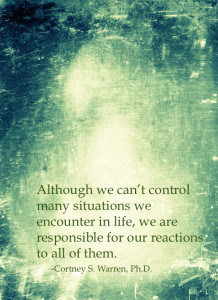Isla Vista: How Do People Become Mass Shooters?
 Before his gun rampage on Friday in Santa Barbara, Eliot Rodgers wrote a 141-page manifesto about his difficulty making friends, his struggles dating, and his lack of self-confidence. Unfortunately, mass shooting sprees are not uncommon. From Adam Lanza in Newtown, Connecticut to Anders Breivik in Norway, such killing sprees have become terribly regular fixtures in the news.
Before his gun rampage on Friday in Santa Barbara, Eliot Rodgers wrote a 141-page manifesto about his difficulty making friends, his struggles dating, and his lack of self-confidence. Unfortunately, mass shooting sprees are not uncommon. From Adam Lanza in Newtown, Connecticut to Anders Breivik in Norway, such killing sprees have become terribly regular fixtures in the news.
In the face of such tragedy, most of us are left with more questions than answers: How does this happen? How do people justify extreme acts of cruelty? How do people become killers?
Although the answer to these questions is incredibly complex, one consistent fact is this: people often use emotional pain to justify extreme acts of cruelty. In this way, mass shooters often justify killing others through the lies they tell themselves.
Self-Deception and Violence
If you tell a big enough lie and tell it frequently enough, it will be believed.
— Adolf Hitler
Although all of us deceive ourselves on a daily basis, one major cost of self-deception is that we use painful life experiences to justify hurting others.
As discussed in Lies We Tell Ourselves: The Psychology of Self-Deception, all of us experience pain in response to challenging life circumstances. Some of our pain may be in response to objectively traumatic events: perhaps we were raised by an abusive parent; lost a child; had a near-death experience; were raped or mugged; or became physically disfigured or disabled. In fact, some of the most famous psychologists who laid the groundwork for psychotherapeutic practice experienced tremendous trauma. Both Sigmund Freud and Viktor Frankl were Jews living in Nazi Europe before and during World War II. They watched and experienced human cruelty first-hand in its most extreme form.
When confronted with such hardship, people often justify their behavior by blaming other people for their pain. For example, an adolescent may justify getting in physical fights by telling himself that someone was speaking disrespectfully about his family. A mother may tell herself that her child deserves to be screamed at because he or she is misbehaving.
In the same way, mass shooters justify their murderous behavior by blaming others for their emotional pain. In fact, history suggests that humans use lies to justify everything from slavery to genocide. We create groups and artificial divisions in our own minds—us versus them—to reinforce that they are different from us in some fundamental way. We then use those differences to justify harming them.
Responsibility and Choice
Although we can’t control many circumstances we encounter in life, we are responsible for our reactions to all of them.
The truth is that living through difficult life circumstances is not an excuse for passing trauma onto others. We are responsible for ourselves independent of life circumstance. Our reactions are a reflection of who we are and we are responsible for them even if what contributed to our pain was objectively horrific and not our fault.
Justifying behavior that harms others comes at an enormous cost to ourselves, our loved ones, and our communities. It is it a lie to say that someone else determines your behavior: the only person responsible for how you act is you. Furthermore, when we blame our behavior on circumstance, we lose our power and we limit our freedom to change. Most importantly, the lies we tell ourselves can lead us to justify causing incredible emotional and physical harm to those around us.
As Victor Frankl wrote about his time in the concentration camps, “The one thing you can’t take away from me is the way I choose to respond to what you do to me. The last of one’s freedoms is to choose one’s attitude in any given circumstance.”
The Naked Truth is this: Although very few humans will ever become a mass shooter, none of us is immune to self-deception. When confronted with emotional pain, we have a choice about how we are going to respond. Are we going to take our pain out on others –or—are we going to take responsibility for our reaction and choose to respond respectfully? We always have a choice.
Copyright Cortney S. Warren, Ph.D.
Selected References:
Frankl, Viktor (1963). Man’s Search for Meaning. Boston, MA: Beacon Press.
Warren, C. S. (2014). Lies We Tell Ourselves: The Psychology of Self-Deception. Sevierville, TN: Insight Publishing.
TO READ MORE OF DR. CORTNEY'S WORK, SUBSCRIBE TO HER BLOG
Safe subscribe. You will have the opportunity to opt-out with every notice we send.


Thank you, Darren! So great to meet you and I appreciate the support.
I dont know of any other websites that are just focused on honesty, but I would say that some of the big Psychology organizations (which are listed on the “resources” tab have some great reference information. Best,